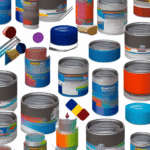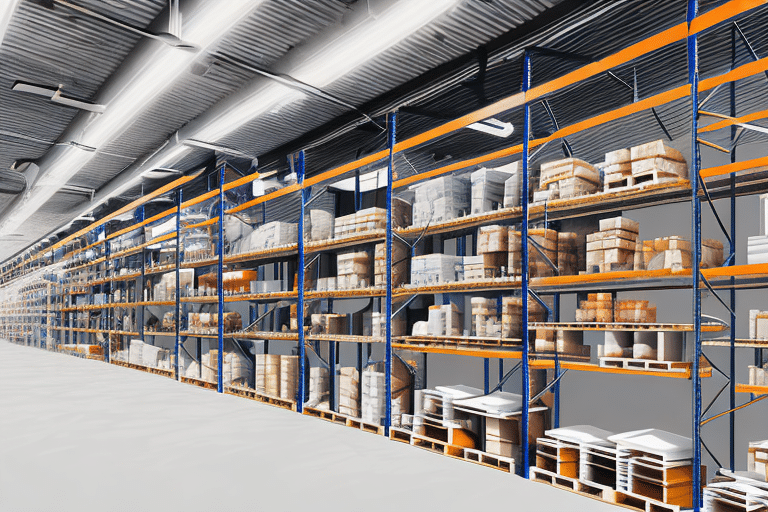Top 10 E-Commerce Platforms for Industrial Paints and Coatings Businesses
In the era of digital transformation, the industrial paints and coatings industry is increasingly leveraging e-commerce platforms to drive business growth. These platforms offer an online gateway for businesses to showcase their products and services to a global customer base. This article explores the top 10 e-commerce platforms ideal for industrial paints and coatings businesses, comparing their features, advantages, and disadvantages to help you make an informed decision tailored to your business needs.
Introduction to E-Commerce Platforms for Industrial Paints and Coatings
E-commerce platforms are web-based software applications that enable businesses to create and manage online stores where customers can browse, select, and purchase products. For industrial paints and coatings business owners, these platforms provide a seamless way to establish an online presence without the need for extensive coding or web development skills.
One of the key advantages of using e-commerce platforms is the ability to reach a broader audience. Customers can access your products anytime, from anywhere, increasing your potential customer base and sales revenue. Additionally, many platforms come equipped with built-in marketing and analytics tools, allowing you to monitor sales performance, track customer behavior, and optimize marketing strategies based on actionable insights.
According to a Statista report, global e-commerce sales are projected to reach $6.54 trillion by 2023, underscoring the significant growth and opportunities within the digital marketplace.
Factors to Consider When Choosing an E-Commerce Platform
Selecting the right e-commerce platform is crucial for the success of your industrial paints and coatings business. Here are several factors to consider:
- Cost and Payment Methods: Evaluate the pricing structure, including monthly fees, transaction fees, and available payment gateways.
- Customization Options: Assess the platform's ability to tailor the design and functionality to meet your specific business needs.
- Scalability and Flexibility: Ensure the platform can grow with your business, handling increased traffic and expanding product lines.
- User-Friendliness: The platform should be easy to navigate and manage, minimizing the learning curve for your team.
- Security Features: Robust security measures are essential to protect customer data and comply with industry standards.
- SEO Friendliness: Effective SEO tools help improve your website's visibility on search engines, driving organic traffic.
- Integration with Third-Party Tools: Compatibility with various tools and software can enhance your store's functionality.
- Customer Support: Reliable and responsive customer support ensures that any issues are promptly addressed.
- Resource Availability: Access to tutorials, documentation, and community forums can assist in troubleshooting and optimizing your store.
Choosing a platform that aligns with these factors will help you create a robust and efficient online store, enhancing both customer experience and business performance.
Comparison of the Top 10 E-Commerce Platforms for Industrial Paints and Coatings
Below is a comparison of the top 10 e-commerce platforms suitable for industrial paints and coatings businesses:
1. Shopify
Shopify is renowned for its user-friendly interface and extensive feature set, making it ideal for small to medium-sized businesses. It offers a wide range of customizable templates, scalability options, and an extensive app store that allows for added functionalities. Additionally, Shopify provides robust SEO tools and integrates seamlessly with various payment gateways. However, some users may find the pricing plans steep as their business grows.
2. WooCommerce
WooCommerce is a free, open-source platform that integrates with WordPress, offering nearly limitless customization possibilities. It supports a wide array of plugins and themes, allowing businesses to tailor their online stores precisely. However, setting up WooCommerce may require some technical expertise, and scaling the platform for larger operations can be challenging without the right resources.
3. Magento
Magento is a powerful open-source platform known for its robustness and scalability, making it suitable for large enterprises with extensive product catalogs. It offers advanced customization options, multi-store support, and strong SEO capabilities. However, Magento’s complexity can be a barrier for beginners, and the costs associated with enterprise-level features can be significant.
4. BigCommerce
BigCommerce provides a comprehensive suite of features, including built-in SEO tools, multi-channel selling, and strong security measures. Its scalability makes it a good choice for growing businesses. However, the platform can be relatively expensive for small businesses, and mastering its advanced features may require additional time and effort.
5. Volusion
Volusion offers excellent customer support and a range of SEO-friendly features. It provides out-of-the-box templates that are easy to set up. However, customization options are somewhat limited compared to other platforms, and some users have reported slower loading times, which could impact the user experience for larger stores.
6. Squarespace
Squarespace is known for its beautifully designed templates and intuitive drag-and-drop interface, making it ideal for smaller businesses and those prioritizing design aesthetics. It includes built-in SEO tools and reliable hosting. However, its scalability is limited, and it lacks some advanced e-commerce features found in competitors like Shopify and BigCommerce.
7. Wix
Wix offers a highly user-friendly platform with a versatile drag-and-drop website builder, suitable for businesses looking for easy customization. It provides a range of templates and basic SEO tools. However, Wix's SEO capabilities are not as advanced as other platforms, and it may not be the best choice for larger online stores with extensive product inventories.
8. Weebly
Weebly is a cost-effective option that provides essential e-commerce features and an easy-to-use interface. It is suitable for small businesses and startups. However, Weebly may lack the flexibility and scalability required by larger businesses, and its feature set is more limited compared to other platforms like Shopify and BigCommerce.
9. PrestaShop
PrestaShop is an open-source platform offering a wide range of features, including robust SEO optimization and numerous payment integrations. It supports multi-language and multi-currency storefronts, making it suitable for businesses targeting international markets. However, setting up PrestaShop can be complex, and extensive customization may require advanced technical skills.
10. OpenCart
OpenCart is an affordable, open-source platform that is straightforward to set up and manage. It offers a variety of extensions and themes, providing flexibility for customization. However, OpenCart's support for third-party tools is limited, and it may lack some advanced features found in other, more robust platforms.
Conclusion: Which E-Commerce Platform is Best Suited for Your Industrial Paints and Coatings Business?
After evaluating the key factors and comparing the top 10 e-commerce platforms, it's evident that there is no one-size-fits-all solution. The optimal platform depends on your business's specific needs, budget, and growth aspirations.
- For Small to Medium-Sized Businesses: Shopify and Squarespace are excellent choices, offering ease of use, robust features, and scalability options.
- For Larger Enterprises: Magento and BigCommerce provide the advanced features, customization capabilities, and scalability required by larger businesses with substantial budgets.
- For Technically Savvy Businesses: WooCommerce and PrestaShop offer extensive customization options for businesses with the technical expertise to manage and optimize their online stores.
Ultimately, selecting the right e-commerce platform involves balancing functionality, cost, and scalability to provide a seamless shopping experience for your customers. It's essential to prioritize the features that align with your business goals and ensure that the platform can adapt as your business evolves.
Additionally, consider the platform's security measures and its ability to integrate with other tools and software essential to your operations. A well-chosen e-commerce platform will not only enhance your online presence but also drive growth and long-term success for your industrial paints and coatings business.








